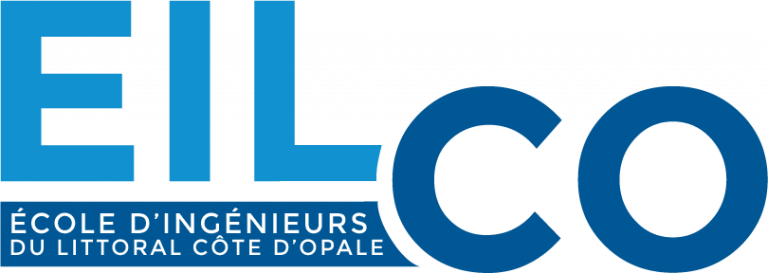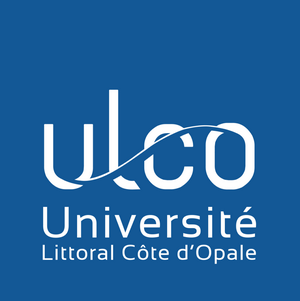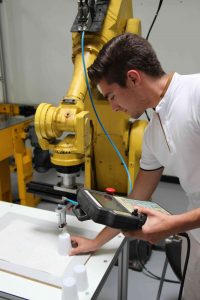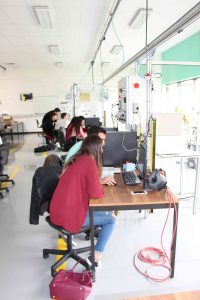The EIL Côte d’Opale trains general engineers in Industrial Engineering at the Saint-Omer site. The objective of the “Industrial Engineering” speciality is to train engineers capable of designing, integrating, operating, managing and improving production systems in order to optimise the company’s performance in the various sectors of industry.
Production professions require skills in the fields of engineering sciences and techniques (automation, signal and image processing, machine vision, robotics, mechanics, process engineering, electrical engineering, energy and sustainable development, computer engineering, etc.) and industrial management (project and team management, work organization, production management, quality assurance, etc.). Health-Safety-Environment, logistics, continuous improvement, etc.) by considering the human, social, economic, legal and environmental dimension.
The EIL Côte d’Opale engineer is also trained to carry out research, innovation and entrepreneurship projects in a context of sustainable development.
The engineering cycle curriculum is broken down into Teaching Units (UE) according to the following typology :
- Basic Sciences
- Engineering Sciences and Techniques
- Specialty Sciences
- Humanities, Economics, Legal and Social Sciences
- International Openness
- Internship
The engineering cycle of the Industrial Engineering speciality is open to students from preparatory classes for the grandes écoles in the MP, MPI, PC, PSI, PT, TSI and ATS courses or from the integrated preparatory cycle of the EIL Côte d’Opale.
Through an internal competitive examination and within the limit of available places, students at the Master 1, Licence 2, Licence 3 level as well as students holding a BUT or a BTS can also join this specialty.
The initial training of students in the engineering cycle takes place over 3 years. It is organised according to the principle of semesterisation and is therefore broken down into 6 semesters (S5 to S10).
The courses are defined through teaching modules that may include Lectures (CM), Tutorials (TD) and Practical Work (TP).
During the first two years of the Computer Science engineering cycle, engineering students follow a common core, including UEs such as Basic Sciences, Engineering Sciences and Techniques, Specialty Sciences, Humanities, Economics, Legal and Social Sciences, International Opening, Internship.
In the final year, engineering students follow a common core in Industrial Management and, depending on their professional project, choose one of the following three courses:
- Logistics or,
- Industry 4.0 or,
- Industrial Ecology.
Students can also follow a course they have chosen as part of a one-semester international mobility or to obtain a double degree.
Finally, the engineering student in his final year has the opportunity to strengthen his professional experience and to be paid within the framework of professionalization contracts offered by many companies. These students then follow an alternation of 3 days in school (Monday, Tuesday, Wednesday) and 2 days in the company (Thursday and Friday) during the first semester.
The training is punctuated by numerous projects spread over the three years.
In the first year :
A 30-hour study project in Computer Science in semester S6.
A 30-hour solidarity project in semesters S5 and S6.
In the second year :
An associative life project started during S5 and S6 and finalized in S7 and S8.
A 50-hour technical project in semesters S7 and S8.
In the third year :
An Innovation and Design Project (PIC) lasting 150 hours in semester S9.
The teaching of the computer science specialty totals 2060 hours, including 1770 hours of face-to-face teaching which includes exams and 290 hours of project-based pedagogy which are distributed according to the graph below :
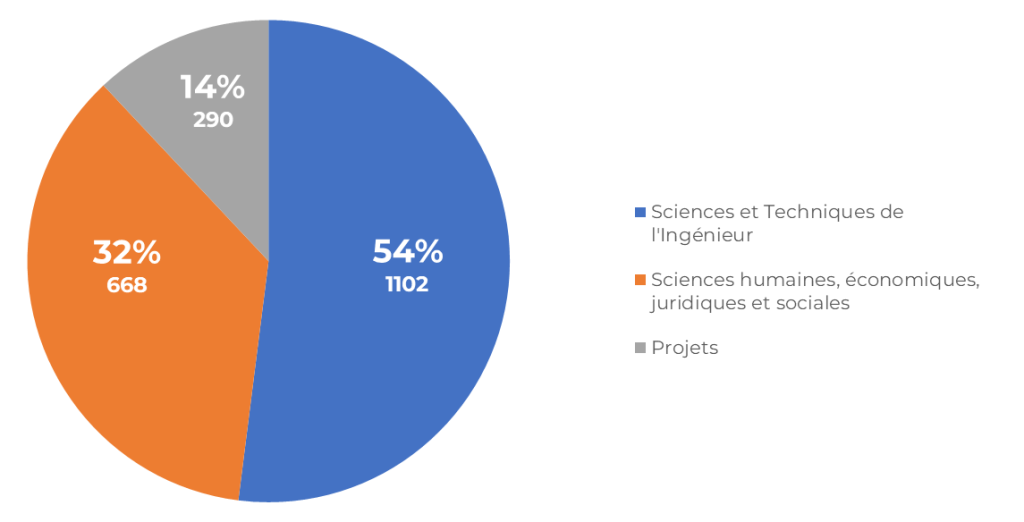
The practical training is supplemented by periods of internships in companies. The duration of the internships during the training period is a minimum of 9 months and represents a volume of 1360 hours. These internships place future engineers at the heart of the company’s realities :
- At the end of the second year of the Engineering Cycle, they complete an internship as an Assistant Engineer (management of a technical project) for a minimum of 12 weeks in France or in a foreign country ;
- At the end of the last year, they carry out their 6-month end-of-studies project in a company in France or in a foreign country. Engineering students are placed in a situation of initiative to solve or contribute to the resolution of a technical or non-technical industrial problem.
The Engineering Science and Technology field is based on disciplines such as mechanical engineering, electrical engineering, automation, machine vision, robotics, energy and sustainable development, as well as computer science – present in the majority of systems used in industry – and mathematics.
Industrial Management details the concepts of organization and industrial management and presents project management as well as entrepreneurship (project and team management, work organization, production management, quality assurance, Health, Safety-Environment, continuous improvement, logistics, etc.).
The Humanities integrate the human, social, legal, economic and environmental dimensions as well as languages.
The knowledge of the Humanities, Economics, Legal and Social Sciences courses constitutes a fundamental foundation for the acquisition of skills in corporate culture and entrepreneurship, management, the conduct and management of projects and teams, as well as knowledge of law, economics and business management, which are essential for any engineer. Some of these lessons are applied to issues related to logistics.
The purpose of the projects is to teach engineering students how to carry out a project from design to completion, including all the phases faced by the engineer in charge of carrying out a project in a company. They allow the learning of group work, the coordination of tasks, autonomy and the analysis of industrial problems whose complexity increases with the advancement in the engineering students’ curriculum. The minimum 10 months of internships, which are mandatory, allow future engineers to familiarize themselves with the structure and working methods in an industrial environment.
The aim of international openness is to prepare engineering students to work in an international context and to have a global and global vision of the issues they will have to deal with. This opening includes training in foreign languages, in particular English and a second modern language (German, Spanish, Chinese, etc.). The aim is to give future engineers the practices that will enable them to participate usefully in work meetings involving people of different nationalities. As English is the language of business, it has been made compulsory at EIL Côte d’Opale (200 hours over the entire course).
A certified level of English, attested by a recognized test external to the EIL Côte d’Opale (the TOEIC test), is required to validate the diploma. The desirable level for an engineer is level C1 of the “European Framework of Reference for Languages” of the Council of Europe. Under no circumstances will an engineering degree from EIL Côte d’Opale be awarded to an engineering student who does not reach the certified B2 level (i.e. 785 points for the TOEIC).
Finally, the school gives an important place to training in and through research. Thus, all students follow two modules with a direct link to the research carried out in the school’s partner laboratories. In addition, the projects carried out may be based on one of the issues developed by the partner laboratories. This opens the possibility for EIL Côte d’Opale graduates to pursue, if they wish, doctoral thesis studies.
The engineering cycle study regulations and the syllabus of the Industrial Engineering speciality detail the modalities and programmes of the three years of training.
Each module is subject to pre-defined evaluations and entitles you to ECTS (European Credit Transfer and Accumulation System) credits if validated.
The evaluation method of the EIL Côte d’Opale is continuous assessment in each subject.
Projects and internships are considered modules in their own right and are also evaluated based on a written report and an oral presentation that trigger the award of ECTS credits in case of validation.
The study guide for the Industrial Engineering speciality specifies the terms and conditions for assessing the knowledge of the three years of training.
Engineers who graduated from EIL Côte d’Opale specialising in Industrial Engineering work for companies in the following sectors :
- the automotive manufacturing, transportation, aeronautics and aerospace sector,
- the food and pharmaceutical industry,
- the communication, engineering, R&D sector,
- the electronics, electrical engineering and IT sectors,
- the energy production or transformation sector,
- the design, engineering and consulting sector,
- industrial sectors related to manufacturing production,
- the materials processing, waste or water treatment sectors.
The professional works in the production departments or in the departments in the production department as a department head (production engineer, R&D, design and design office, method and industrialization, organization and logistics, maintenance, quality, safety, consulting, etc.), or in positions such as project manager, marketing, etc. for those who have a commercial flair.
Head of the 1st Year of the Engineering cycle, Industrial Engineering specialityDharmendra SINGH |
Responsible for the 2nd Year of the Engineering cycle, Industrial Engineering specialityCathy GOGNAU |
Head of the 3rd Year of the Engineering cycle specialising in Industrial EngineeringShahram BAHRAMI |
SecretariatLaurence LOISON |
